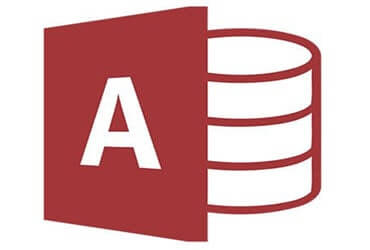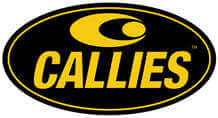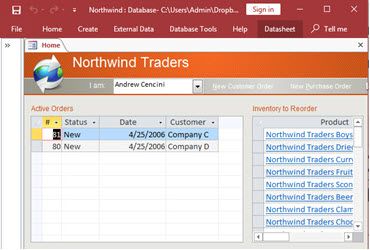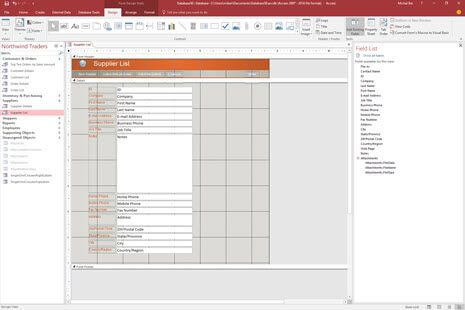
MS Access As A Dev Tool
Access continues to be a highly efficient tool for business database development.
Don't let a damaged database disrupt your Artesia business. We repair broken databases, recover data, modernize legacy
applications, and upgrade databases to the latest version.
Call (323) 285-0939 now for a FREE consultation.
MS Access Solutions helps Artesia, California businesses repair, modernize, and extend Microsoft Access databases so your staff can work faster with fewer errors. We specialize in custom forms and workflow, VBA automation, advanced queries and reporting, and hybrid architectures that use SQL Server for scale while keeping Access simple for daily use.
Whether you run professional services, light manufacturing, wholesale distribution, healthcare clinics, or back-office operations, we tune your database for speed, stability, and clean reporting. We start with practical fixes—indexing, lean recordsets, and clear relationships—then add enhancements that deliver immediate value to daily users and leaders.
Ready to stabilize today and grow tomorrow? We'll review your current file, outline quick wins to end slowdowns and crashes, and map a clear path for improvements that matter in Artesia—faster data entry, accurate inventories, and on-time reports your managers can trust.
The Best Microsoft Access Database Solutions owner, consultant, and principal programmer is Alison Balter - a recognized expert Microsoft Access consultant. Alison is the author of 15 Microsoft Access training books and videos. She is a frequent guest speaker at MS Access conferences and has developed hundreds of applications for businesses of all types.
We know your business data is important; we listen to your concerns, ask questions, and gather information from all stakeholders. We discuss your needs and requirements for your database. We find out what you want, why you need various features so we can obtain as much information as possible. Once we have the information we need, we work with you to design the proper database architecture, plus the dashboards, the questions (queries), forms, and reports you need for an excellent database system.







Access continues to be a highly efficient tool for business database development.

How to create a Microsoft Access application with some unique tips and tricks.

Your Access developer near me has some great info for you about using Access efficiently.
Performance problems usually trace back to scanning too many rows. Start by indexing only the fields used for filtering and sorting, then verify those indexes are actually being used by your queries. Replace “SELECT *” with explicit field lists and bind forms to purpose-built queries so Access retrieves hundreds of rows, not hundreds of thousands.
Keep joins lean and predictable. Prefer numeric keys, avoid calculated expressions in join conditions, and precompute heavy logic in saved queries you can reuse. Defer subform loading until a parent record is chosen, and use snapshot/forward-only recordsets where edits aren’t required. These small changes reduce network traffic and deliver snappy forms your team can feel immediately.
Sharing a single monolithic file invites corruption and locking. Split the application: keep tables in a shared back-end and give every user a local front-end. Turn off Name AutoCorrect, relink tables with UNC paths, and exclude the data folder from on-access antivirus scans. This eliminates stray locks and stops the “someone already has it open” surprises.
Ship updates with a simple launcher that checks version, downloads the latest front-end, and relinks silently. Pair that with a weekly compact/repair and a short backup schedule, and most “Access is down” mornings disappear. The result is predictable concurrency and fewer support calls without moving the whole system to a new platform.
When data grows, keep Access as the friendly front-end and promote the tables to SQL Server. Use proper datatypes, clustered indexes on primary keys, and unique constraints to protect data quality. Offload heavy aggregations to views or stored procedures and call them via pass-through queries so the server does the heavy lifting and only returns what the form needs.
This hybrid approach preserves the speed of Access development with the stability and security of a true server back-end. You gain row-level locking, better backups, and room to grow—while users keep the screens and workflows they already know. It’s a practical upgrade path with fast, measurable wins for daily operations in Artesia.
Answer: We prioritize quick, measurable wins first—stability, speed, and clean reporting and then layer on enhancements. Our approach is practical: split front-end/back-end, index what you actually filter, and trim recordsets so everyday tasks feel faster without forcing a platform change you don’t need. With 25+ years experience working on thousands of Access projects, we have the expert skills you need.
Answer: Yes. Most slowdowns and crashes come from a few root causes: oversized forms, missing indexes, and shared single-file setups. We target those first, often restoring speed and reliability in days—not months—while keeping your forms and reports intact.
Answer: We deploy a split design: a shared back-end for tables and a local front-end for each user. We also disable Name AutoCorrect, standardize relinks with UNC paths, and schedule compact/repair. The result is fewer locks, fewer “in use” messages, and smoother daily work.
Answer: If your data volume keeps growing, you need stronger security, or reports aggregate lots of rows, a hybrid Access + SQL Server setup makes sense. Access stays as the front-end your team knows; SQL Server handles storage, indexing, backups, and heavier queries.
Answer: Absolutely. We import Excel files, de-duplicate records, add validation rules, and normalize tables so each fact lives in one place. That reduces errors, prevents conflicts, and makes reporting consistent across departments.
Answer: Triage and stabilization (indexes, recordsets, split deployment) can be completed in days to a couple of weeks. Larger enhancements—new forms, automation, or a SQL Server back-end—are planned in small, testable phases to avoid downtime.
Answer: Yes. We can provide a lightweight maintenance plan that includes backups, health checks, compact/repair, and versioned front-end updates. This keeps performance steady and prevents small issues from becoming outages.
Answer: That’s the goal. We stabilize and optimize under the hood first—indexes, queries, relinks—so screens look familiar but run faster. When we change a form or report, it’s to reduce clicks, prevent data errors, or deliver clearer metrics.
Answer: We set role-based access in the front-end and, when using SQL Server, enforce permissions at the database level. We also standardize trusted locations, remove risky macros, and document how to add or remove users safely.
Find out more on the Microsoft Access programmer Avalon, California web page.
We also provide services to all U.S. cities, and you can view an example on the
Microsoft Access programmer Phoenix, Arizona web page.

